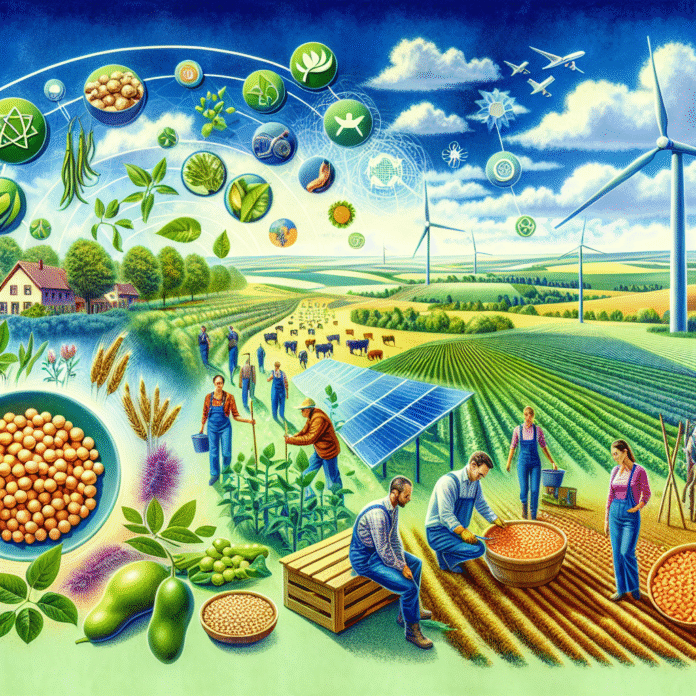EU-Funded Research Investigates Sustainable Protein Alternatives for Agriculture
EU-Funded Research Explores Sustainable Protein Alternatives for European Agriculture
In a significant initiative aimed at enhancing food security and sustainability, the European Union is investing in research focused on sustainable protein alternatives for agriculture across Europe. This effort seeks to address the growing demand for protein sources while minimizing the environmental impact associated with traditional livestock farming.
Understanding the Need for Sustainable Protein
As global populations rise and dietary preferences shift towards higher protein intake, the pressure on conventional agriculture systems intensifies. The EU’s research initiative acknowledges this challenge and emphasizes the necessity for innovative solutions that can provide high-quality protein without the extensive resource use and greenhouse gas emissions linked to animal farming.
Innovative Protein Sources Being Explored
The research program encompasses a variety of alternative protein sources, including plant-based proteins, insect farming, and even lab-grown meat. Scientists are examining the nutritional profiles, economic viability, and environmental benefits of these alternatives to ensure they can meet consumer needs while aligning with sustainability goals.
Benefits of Plant-Based Proteins
Plant-based proteins, such as legumes, pulses, and grains, are at the forefront of this research. These sources not only offer a lower carbon footprint but also enhance soil health and biodiversity when integrated into crop rotations. Additionally, they provide a rich array of nutrients that can contribute to healthier diets.
The Role of Insect Farming
Insect farming is gaining attention as a highly efficient and sustainable method for protein production. Insects require significantly less land, water, and feed compared to traditional livestock, making them an attractive option for protein sources. The research aims to develop methodologies for scaling up insect farming within the EU, ensuring safety and regulatory compliance.
Lab-Grown Meat: A Future Perspective
Lab-grown meat represents another frontier in sustainable protein research. By cultivating meat cells in a controlled environment, researchers aim to produce meat products that mimic the taste and texture of traditional meat without the associated environmental burden. This technology is still in its infancy but holds promise for the future of meat consumption in Europe.
Collaboration and Knowledge Sharing
The success of this initiative relies on collaboration among various stakeholders, including researchers, farmers, policymakers, and consumers. Knowledge sharing and community engagement are crucial to promote acceptance and understanding of these alternative protein sources. Workshops, seminars, and pilot projects will be organized to encourage dialogue and foster innovation within the agricultural sector.
Looking Ahead
As the EU continues to prioritize sustainable agriculture practices, the research into alternative protein sources is set to play a pivotal role in shaping the future of food production. By investing in these innovative solutions, Europe aims not only to enhance food security but also to lead by example in the global movement towards more sustainable and resilient food systems.


